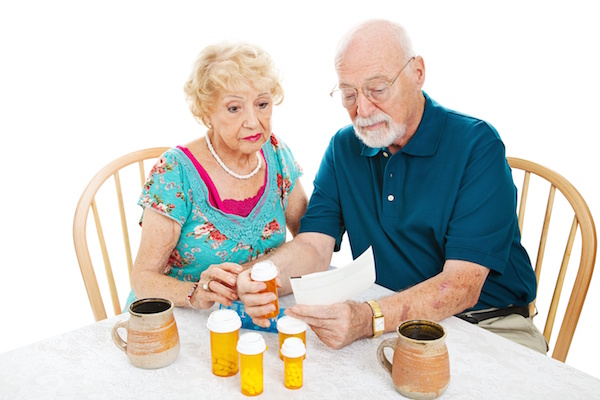
Losing your nearest and dearest may break your heart, literally.
People are more likely to develop an irregular heartbeat following the death of their spouse or life partner, particularly if they’re younger or the loved one died unexpectedly, a new study suggests.
Risk of atrial fibrillation — a quivering or irregular heartbeat that can cause stroke and heart disease — was 41 percent higher among people mourning the death of their partner, compared to others who are not grieving, Danish researchers report.
The study reinforces earlier research that has suggested a link between heart rhythm problems and emotional turmoil, said Dr. Mark Estes, director of the New England Cardiac Arrhythmia Center at Tufts Medical Center, in Boston.
“Many patients describe that their atrial fibrillation gets worse at a time of emotional stress,” Estes said. “This really validates prior observations. It’s something we hear from our patients all the time.”
People younger than 60 were more than twice as likely to develop atrial fibrillation if they lost their partner, the new study reported.
In addition, those whose partners were relatively healthy in the month before they died were 57 percent more likely to develop atrial fibrillation. This increased risk was not seen in people whose partners were ailing and expected to die soon.
In both cases, it appears that the shock of the death added to the impact of the event on the survivor’s health, said Dr. Mary Norine Walsh, medical director of heart failure and cardiac transplantation at St. Vincent Heart Center in Indianapolis.
“This suggests the suddenness or the unexpectedness of the death contributed to the risk of a-fib,” said Walsh, who also is vice president of the American College of Cardiology. “The people who were older and suffered a loss, maybe their loss was more expected.”
For the study, researchers compared more than 88,600 Danish people newly diagnosed with atrial fibrillation with 886,120 healthy people, matched for age and sex, between 1995 and 2014.
People who lost their partner were not only at greater risk for an abnormal heart rhythm, but the risk was independent of gender and other conditions that might contribute to the disorder, the researchers said.
The risk seemed greatest eight to 14 days following a death, after which it gradually subsided. After a year the risk was similar to that of someone who had not been bereaved, the researchers said.
Because this was an observational study, it cannot draw a direct cause-and-effect link between the death of a partner and atrial fibrillation, the researchers noted.
But stress and powerful emotions are known to flood the body with “fight or flight” hormones that can take a toll on the heart, said Dr. Suraj Kapa, a Mayo Clinic cardiologist in Rochester, Minn.
For example, studies have shown that depression or anxiety can be used to predict whether a person will relapse into atrial fibrillation after going through cardioversion, a medical procedure that uses electricity or drugs to put the heart back into a normal rhythm, Kapa said.
Dr. Suzanne Steinbaum, director of Women’s Heart Health at Lenox Hill Hospital in New York City, said the study shows why people who’ve suffered a tragic death in their lives need the support of friends and family.
“We use that phrase ‘broken heart’ as though it’s a colloquialism, but there’s a reality to it,” Steinbaum said. “The most important thing is having a support system, especially in the event of a sudden, unexpected death. It’s so important that people get the support they need.”
It also underlines the importance of doctors taking a few minutes during an office visit to ask about their patient’s personal life, Walsh said.
“Physicians should be taking a careful personal history so the loss of a loved one is not missed,” Walsh said, noting the bereaved can be counseled on ways to protect their heart health.
The study was published April 5 in the journal Open Heart.
More information
For more on atrial fibrillation, visit the American Heart Association.
Source: HealthDay

Leave a Reply